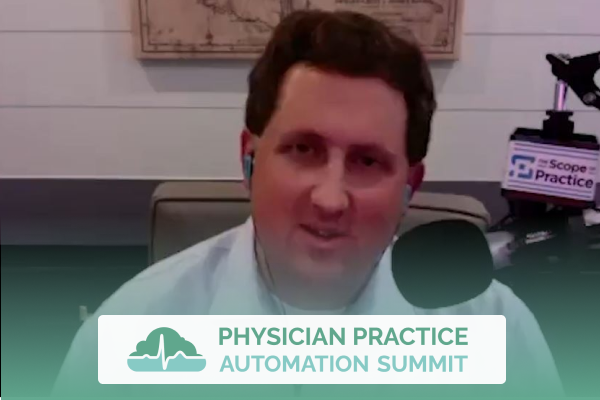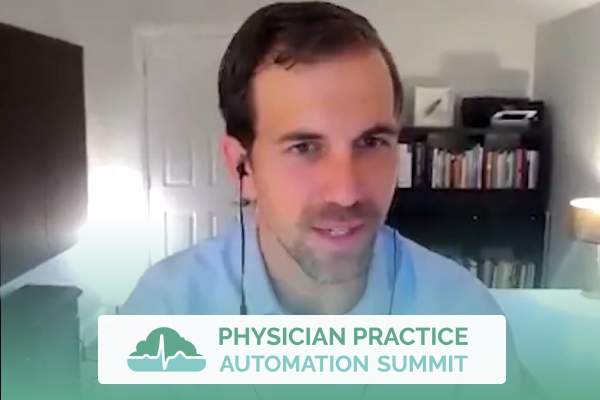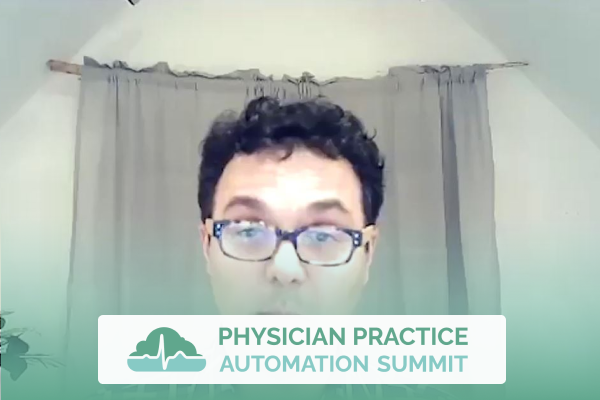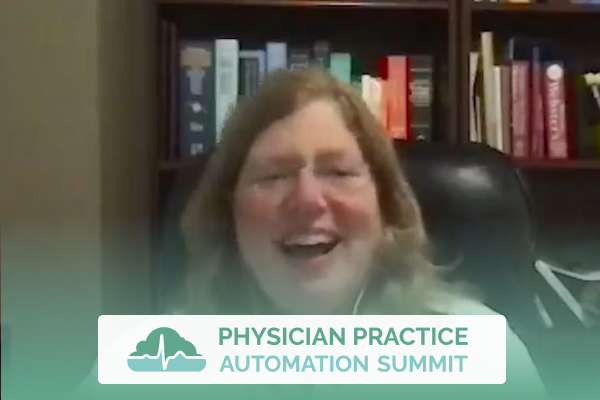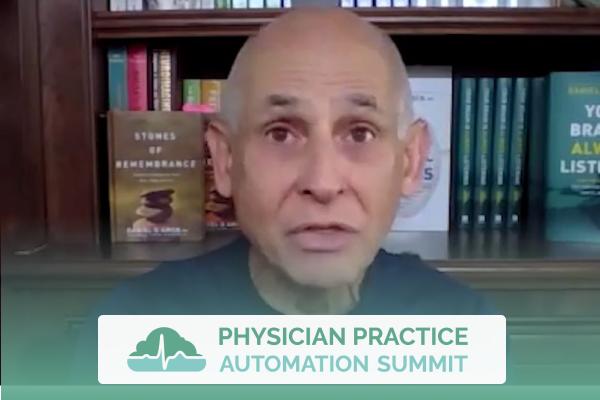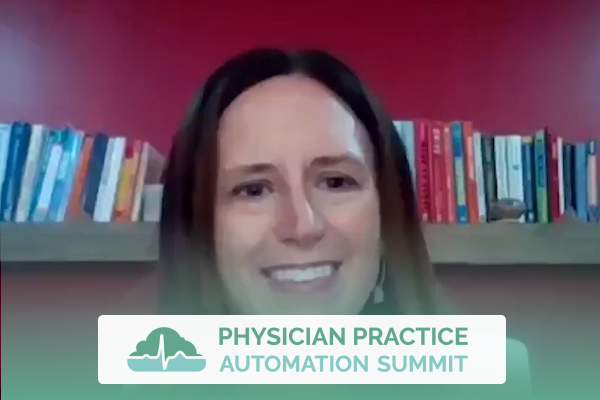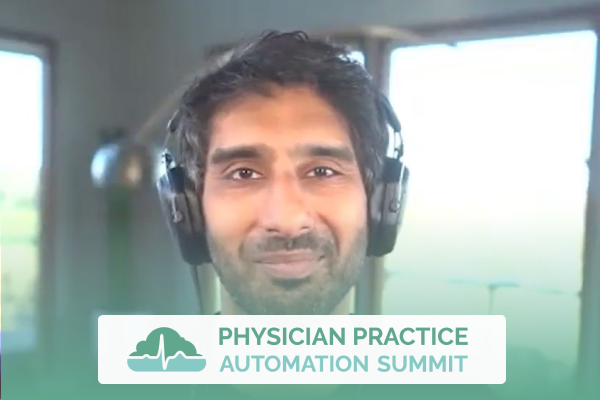Join the discussion below

Dr. Ruan is the Founder and CEO of Texas Center for Lifestyle Medicine. He devotes his career in practicing and building systems that allow for efficient delivery of healthcare. He is a board certified internal medicine physician but also have advised with companies to improve their workflow, company culture, marketing,... Read More
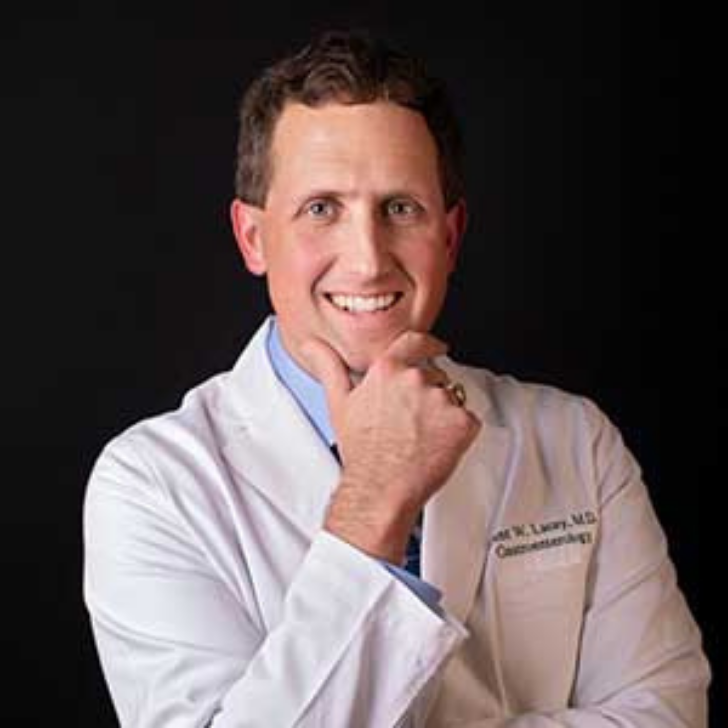
Dr. Brent Lacey holds a new summit Marriage and Money MD (Nov 15-17th) and is a gastroenterologist who is passionate about helping physicians succeed with business and personal finances. As a physician, he understands how overwhelming it can be to step out of clinical training and into a career, and... Read More
Cheng-Huai Ruan, M.D.
Everyone, I have Brent Lacey, M.D. today. Dr. Lacey is a gastroenterologist who is absolutely passionate about helping physicians, like myself, succeed with business and personal finances. As a physician himself, he’s a gastroenterologist, he really understands how overwhelming it can really be to really step out of clinical training and into a career. And he’s seen really firsthand the lack of education on how to run a practice, how to run your life, personal finances, and he’s coached hundreds of families to succeed in building personal wealth and super stellar careers. And has spoken to physician groups around the country on topics related to business and personal finance. He’s the founder of the Scope of Practice website. And his goal is to help physicians learn how to grow their leadership skills, their business and personal finances. So it is my honor to introduce Dr. Lacey today. How are you doing Dr. Lacey?
Brent Lacey, M.D.
Hey, Dr. Ruan, I am excited to be here. Thank you so much for having me. It’s stuff like this, it’s summits like this, and in conversations like these that really help, you know, physicians do better, be better, and avoid that burnout that we’re gonna be talking about. So I’m super excited to be part of this.
Cheng-Huai Ruan, M.D.
Yeah, you know, when I started thinking about what I wanted to include on the Physician Practice AI Summit, the first thing I thought about was burnout. Because, you know, part of like upgrading a practice is you can’t do it and be more burnt out, right? And so I feel like there’s technologies available that we can adopt. There’s all these different things that we can adopt to improve our practices. But today we’re really gonna focus on exactly what burnout is. And I think it’s different for each person because we’re all different people, different personalities, right? And so, you know, I think that… Let’s kind of define burnout. Like, what is the definition of a physician burnout to you?
Brent Lacey, M.D.
Well, like you said, there’s a lot of different ways to define it. I think it looks a little different for everyone. But as a basic concept, I think burnout is reaching a point where the amount of stress and frustration that you experience from whatever part of your life you’re talking about, in this particular case, your career, exceeds the joy that you feel from working in that career. And so everybody has a different breaking point from that standpoint. Some people reach that point very quickly, very early in their career. Some people, it may take 10 years. Some people it’s specifically related to the job that they’re at or the boss that they work for, or the staff that that they have under them. And so it can incorporate a lot of different factors. But it’s that tipping point where the amount of stress is no longer balanced adequately against the joy that you feel. And that’s what is bubbling up to the top.
Cheng-Huai Ruan, M.D.
Right, and I think when I talk to other doctors, I think there’s a perception that burnout is something that you experience only in your professional box, right? But that’s not necessarily true, right?
Brent Lacey, M.D.
No, you can experience burnout in work, you know, at home, with dealing with your community. So for example, I know a lot of people that have experienced burnout with youth sports, right? So, I mean, we’re both in Texas. And so, you know, between football and soccer and baseball, I have talked to a lot of families that have, you know, they’re doing 20 to 30 hours a week doing baseball practice and baseball tournaments and traveling to other states. And it’s very easy to get burned out from that kind of thing too. So yeah, it can absolutely happen in any aspect of your life, for sure.
Cheng-Huai Ruan, M.D.
Right, You know, in medicine, and we see patients do this all the time is that if they get diagnosed with something. And especially if it’s like a cancer or something that’s really sensitive, that could be life-threatening, but a slow indolent course. They say that, “Oh, I’m a cancer patient.” Not, “I’m a person who happens to have cancer.” And I feel like with doctors, and including myself, I’m totally guilty about this. I was like, “Oh man, I’m burnt out.” But am I really burnt out or is burnout part of what I am? And do I have a choice of not being burnt out? What do you think about that?
Brent Lacey, M.D.
Yeah, so that is one of the key distinctions that I make that I think a lot of people really miss out on. You see blogs, you see social media discussions all the time about physician burnout. And the thing that makes me the saddest is when someone says, “I am burned out.” It means that they have taken that on as a mantle, that it’s become part of them. It’s like a cloak that is enveloping them. Or it’s a fortress that has been erected to keep them, you know, huddled inside. And it’s really tragic when someone gets to that point because they see it as a core part of who they are as opposed to something that is a temporary state, something that is an emotional challenge, something that is related to the situation of the moment. It’s related to their job at work, their boss, whatever. And so what I always try to tell people is that the key thing is to identify the burnout or the potential for burnout, but don’t identify as burned out. You start claiming that mantle of burnout for yourself and it becomes part of who you are, it is much more difficult to shake. And that feeling becomes a cancer that just metastasizes very quickly and very quickly starts to consume your other thought processes. It can bleed over from work into home, into your community activities. And it’s very, very dangerous.
Cheng-Huai Ruan, M.D.
You know, so I’m guilty of that, right? I used to say, you know, “I’m burnt out” all the time, especially when I’m trying to run my practice, start my practice, have multiple hurdles in it and learn a lot along the way. I think here’s the problem. You know, I think the problem is that, like you said, you hear burnout in the media all the time and hear, “Oh, you know, 44% of doctors in the United States “are burned out.” And now it’s become like a normal place thing, right? And so why do you think it’s becoming so common?
Brent Lacey, M.D.
So it’s very interesting that you asked this question. I’ve asked this question of a lot of people who speak on this topic extensively. And the sense that I get from people, both from thought leaders in this space as well as from just general physicians, is that this is not necessarily a new phenomenon. That this has always existed to a certain extent, but it has taken on a new form. And there are the expanse of what really crushes people’s souls when it comes to the reality of the administration of medicine has really just exploded in the last 20 years in a way that it really wasn’t present for the generation of our attendings. So, you know, when our attendings were in residency and in fellowship, you know, they were all working 100 hours a week. And so you hear a lot of folks who are in their sixties and seventies talking about, “Oh, well, you kids have it easy. “All these work hour restrictions and things like that.” And there’s honestly some validity to that. I don’t think that’s even an unfair critique, but what wasn’t present back then was the degree of administrative hassles, the regulations, the metrics, you know, the sheer amount and volume of paperwork. It was just medicine, medicine, medicine back then. And you were exhausted because you were working so many hours, but you weren’t exhausted because you’re frustrated by the fact that you were basically becoming a scribe or a clerk instead of being a physician. I mean, I can work 100 hours a week as a physician, but I don’t want to work 100 hours a week as a transcriptionist or as a social worker or as, you know, as a secretary. And there’s nothing wrong with any of those professions, but that’s not what I signed up for. And I feel like that’s a lot of what medicine has become. And I think a lot of physicians are reeling from that.
Cheng-Huai Ruan, M.D.
And especially with the embracing, globally, of electronic medical records. And EMRs, you know, I think they had a good intention at first, but now the tool is being used to do a lot of different monitoring, different things. And the practice of medicine is so different. And I think you’re right. ‘Cause you know, if I’m sitting there, I’m typing on, you know, I use eClinicalWorks, I’m typing on eClinicalWorks and I’m jotting away, and I’m doing my templates, stuff like that. You realize that there’s a lot of burnout just from that documentation and doing this paperwork that didn’t necessarily exist before. So, you know, I think that technology has changed. So as the technology advanced, unfortunately burnout, I think worsened as well. And not only that there’s social media, right? So I think there’s something that in marketing called perceived value.
So the perceived value of a physician, especially after 2019 and 2020, has gone down. This is in multiple different surveys. There’s physician mistrust. There’s actually physician to physician hate going on on social media, you know. There is a lot of just negativity talk around the matter. And I think this is the time where everything is being questioned, the cancel culture, if you will, right? And I think that what arises from the coronavirus in 2020 into 2021 is an explosion in the next 5 to 10 years of a cancel culture that’s really targeted at the highest level of professionals, which are physicians and other people within doctorate degrees and stuff like that because of just such a value that’s placed on individuality and voice rather than looking at powers of authority.
So I think that that’s a big deal going into 2022. I think the other thing is that yes, there’s technology has changed, right? But I think personal finance has also changed, right? The way that money is saved and all the distractions that are out there and cryptocurrency and all those different things that a lot of physicians like to talk about in my circles. A lot of that has changed. And so let’s talk about how does actual personal finance and financial independence actually contribute to burnout?
Brent Lacey, M.D.
So it’s interesting. It takes a few different forms. But the primary form is just another layer of added stress. And so what I see from folks is that, you know, when you’re coming out of medical school, when you’re coming out of residency, the average amount of medical school debt is over $250,000. And recognize that’s average. There are a lot of zeros averaged into that, right? So folks like me who are on a military scholarship, folks who are doing MD PhD programs, folks who got big scholarships, there are a lot of zeros averaged into that. So the average amount of medical school debt is probably closer to 300,000, really. And so all of a sudden, you know, you get out there, you have your attending paycheck and you’re like, “Yeah, I’m making some money.” And then you look and you’re going, “But I’ve got to pay $4,000 a month to Sallie Mae. “Are you kidding me?”
Cheng-Huai Ruan, M.D.
I’ve been there.
Brent Lacey, M.D.
And that is incredibly stressful. I mean, our attendings never had to experience anything close to that. I mean, the cost of tuition, the cost of living has just exploded. And that contributes to burnout in the sense that it weighs on you, it’s another thing weighing on you. And the way that I kind of think about it, it’s like a wagon wheel, okay. Or like a bicycle wheel. You’ve got a lot of spokes that are going out. You’ve got a personal finance spoke. You’ve got a career spoke. You’ve got a family spoke, You’ve got a church spoke. You’ve got a community spoke. And if any one of those areas, the spoke is broken, then the wheel is gonna be flattened in that spot and your wheel is not gonna spin right.
So each one of these is a critical component of the entire burnout model. And so it’s important to have focus on each one of those in balance. And so with the personal finance aspect of things, one of the things that I find, and you know, this is something I do a lot of coaching on this, is people just experience tremendous amounts of stress over, you know, how am I gonna pay my debt? Like last year, this came to a really big, big summit for people where a lot of folks are either losing their job or worried about losing their job or worried about getting replaced by nurse practitioners and PAs, or actually getting replaced by nurse practitioners and PA’s, all of whom I’m sure are very qualified.
But this job security they thought they had forever, suddenly it’s not so secure. And that adds another layer of stress. And then it just contributes more to the mental and emotional weight that takes you away from other things. And so, you know, if I’m sitting there coaching a patient through their Crohn’s disease and trying to work through which biologic are we gonna choose? And why isn’t this working? If I’m sitting there thinking, “Man, I wonder how I’m gonna get to the end of the month “and make my student loan payment. “And the kid’s field trip. “Man, those expenses are blowing up for me.” You know, I’m not focused on the patient. So if you walk into a patient’s room and you’re dragging a huge student loan debt behind you, it’s gonna make your focus start to drift. It really pulls you away. And I think it is one of the many things that contributes to burnout at work.
Cheng-Huai Ruan, M.D.
I think most of us can identify with that. I certainly can when I have to pay Sallie Mae a lot of money. And my wife and I, we met in medical school, which means we doubled that $300,000 in debt coming out, right? And then we were fortunate to come into situations where we were able to pay it off relatively early, but that took a lot of strife, right? So, you know, speaking about that, there’s nothing one can do coming out of medical school and then even residency with a large load of debt. Are there things that people can do to avoid this type of burnout by looking at the finances?
Brent Lacey, M.D.
Yeah, there absolutely is. And I think it just starts with paying attention and just deciding to have a plan. One of the problems that I find most often for folks, when I sit down for an initial coaching session with somebody, one of the most common things that people say is they feel stressed because they don’t know what to do first. And then they don’t know what to do next. And they don’t know what to do three years from now. They don’t have a plan. All they see is just this ruinous mountain of debt and just fear over the unknown. Or like, “How fast can I pay this off? “What is this gonna look like?”
Cheng-Huai Ruan, M.D.
Survival mode, man, we’re just in survival mode.
Brent Lacey, M.D.
Absolutely. What kind of limitations is this gonna place on my career? What kind of, you know, am I gonna be handcuffed to this job because I’m stuck and I can’t afford to go anywhere else ’cause I need the money to be able to pay off my student loans. And so what I think is the most important thing that people can do is sit down and start to make a plan. And so what I do typically for folks is I recommend starting with a budget. And I know that sounds very basic. And a lot of people hear that and are like, “Um, no.” It’s one of the things a lot of people are like, “Well, you know, I should be able to figure it out.” You can’t, it just, it doesn’t work. It fails so often. It just is not effective. So it’s really important to know exactly where you’re spending your money, how much you’re spending and be intentional about it.
So starting with a budget I think is key. And then the second thing I recommend for folks is come up with a plan for eliminating debt and decide that it needs to be a priority for you. So this business of, “Well, I’ll just pay off the minimum amount “and 30 years from now, it’ll be gone.” Don’t leave that hanging over your head, okay. It is just a lot of added unnecessary stress. So live like a student, live like a resident and just knock it out. Be done in three years or five years or whatever. And it is just so freeing to have that weight lifted off of you. And then just start making step-by-step plans. Once the debt is gone, just start systematically every month save for retirement, save for college for your kids, work on paying your house off early. And just do it little by little every month. It’s just one step at a time, one step at a time. But over time it will absolutely add up, but that’s really the key thing is you got to have a plan. You’ve got to sit down and make a deliberate step-by-step plan for how you’re gonna do this.
Cheng-Huai Ruan, M.D.
Sounds like a really overwhelming task. I mean-
Brent Lacey, M.D.
It sounds overwhelming, but that’s why it’s so helpful to break it down into such into little smaller bites, you know. Start simple, start by making a budget. How much money are you bringing in every month? X, great. So I need to allocate this amount for rent, this amount for food, this amount for utilities, this amount for my transportation and whatever else my expenses are. Okay, how much do I have left at the end of the month? This much, great. That’s all going towards my debt. And then, you know, if I get a bonus, great, that’s gonna go towards my debt. And we just, you’re breaking into a very simple chunks. You’re not looking at, you know, it’s the analogy I like to use the tool that you need as a lantern, not a lighthouse. And what I mean, that is with a lantern, if anyone’s ever walked through the woods with a lantern or walked through the woods with, you know, just like a very small flashlight, you can only see about three or four steps ahead of you. That’s what you need. You don’t need to be seeing 25 years in the future. Start small. What is the next step you need to take? Take one step, get there and then take the next step and then take the next step. But focus on one step at a time.
Cheng-Huai Ruan, M.D.
Believe it or not, I’ve actually walked through the woods with lantern, but possibly cause I’m from China when I was a kid, right?
Brent Lacey, M.D.
And I’ve done it from the Boy Scouts, so, I guess we we both got an education.
Cheng-Huai Ruan, M.D.
There you go. There you go. I’m gonna ask you know, I’m gonna ask personal questions about me then. I, you know, our debts paid off. You know, we did the math. We lived below our means and paid it off. But, you know, I feel like there’s still a burnout because here’s what’s happening. You know, I talk to my friends. I have this wonderful group of ER doc friends. I have this wonderful group of intensive care friends. And they’re mostly like shift work docs, right? So the paid off their stuff. You know, they’ve been in the business for a while. Some of them are in the mid fifties. But they still have financial burnout because I think their perception is this. Is that okay, well, you know, I would like a Maserati GranTurismo, and I’m gonna work 13 extra shifts But what I tell them is that may actually burn you out because yes, that is one of the outcomes that you have. But what is your, what is your 5, 10-year plan here, and how do you expect to get there? So I feel like a lot of doctors, and after they got out of debt, they’re still lost. Like how should someone who’s already out of debt, but having that mentality, “I’ll just work more, I’ll have more hours.” And they still get burnt out. Like, how do you approach a mentality like that?
Brent Lacey, M.D.
What I find that is happening most of the time when people are in that situation is that they flip their budget upside down. So what you got to do is when you’re choosing what you’re gonna spend your money on every month, and don’t call it a budget if you don’t want to. Call it a cash spending plan or whatever. But what you need to do is start first with your long-term goals. So long-term goals are gonna be retirement, saving for your kids’ college, and paying off your house. Those are gonna be most people’s big three long-term goals. And so what you need to do is at the beginning of the month, you have X amount of dollars. And what you need to do is figure, sit down and go through the process of figuring out how much money do I need to save every month for the next X number of years in order to be able to retire with the amount of money that I want? How much money do I need to be saving every month to ensure that I can pay to go send my kids wherever they want to go to college, or however you want to do that? How much money do I need to be saving each month to pay off my house in 10 years, 15 years, 20 years? Those things come out first.
Pay yourself first, then spend whatever’s left. And the problem is that most of us, and this isn’t exclusive to physicians, this is everybody, is that we, we spend, spend, spend. Like, “I want this, I want this, I want this. “I need rent, I need food and utilities. “And these are the things that I want. “What’s leftover?” Don’t do that. Start with giving first, okay. That’s that’s my first line on every budget is giving. You know, what is the most, what is something that you want to, you know, how do you want to give your money away? You know, for me, it’s tithing to my church. For some other people, maybe it’s giving to charity, but that goes first. Because if you don’t put it first, it doesn’t happen. And I personally think that generosity is one of the key features to building wealth. Because generous people just are more successful. They are happier by and large. They are more attractive to be around. So put that first. Then the next thing is saving and paying off debt. And make that a priority. And then decide you’re going to accept living on whatever is left. But don’t put the cart before the horse. That’s one of the things that’ll mess people up.
Cheng-Huai Ruan, M.D.
It’s very counter intuitive. ‘Cause you’re like “Give first,” right? And then pay yourself. And then figure it out some of the other stuff. And I think for most of us, it’s the complete opposite. You know, me included. I’ll tell you though, my first step outside of the well of burnout for me was contribution, right? We started contributing to things and charities and events and stuff like that. And at that time we weren’t really financially anywhere nearing to do that. But it gave so much clarity on what I really wanted to do that it allowed me to look forward to sitting down and actually planning something. And then I stopped thinking about that Maserati GranTurismo, even though I did get one ultimately. I stopped thinking about it. And I started thinking about, well, what can I do from a contribution side? And then that’s the time where I was actually trained under a Tony Robbins program and there’s talks about the six human needs. And one of them is contribution, which is contributing to the community.
Another one is significance, another one’s variety, it’s love and connection. But I was missing that contribution piece. And I didn’t know where in my life was contribution. I wanted to really target the wagon wheels you talk about. And making sure that each part of my life was fulfilled so that as the wheel turns, it’s nice and smooth. And that contribution was missing. But the minute I did that. And I donated to a human trafficking program, by the way. I’m writing a check. I’m like, “I don’t even have his money, “but here it goes anyways.” But that triggered my brain. Like something about that triggered my brain to want to do, sit down and get my life in order. I had the best talk with my family, my wife, my dad, my mom, like I’ve had ever. And to really just come clean about that. And it’s really, it’s kind of a purging moment for me. And completely unexpected because it’s not my character to do that.
But when I nurtured my love for contribution, that’s where it is. And I thought I have plenty of contribution. You know, I’m an integrative medicine primary care doc. So we contribute a lot to our patients. And so, but contributing to patients is a different part of the brain as contributing to society, I feel like. And contributing to patients is, you know, that’s part of my vocation, it’s part of my business. And I see it as something that’s necessary for me to generate revenue, generate wealth. But contributing to society, it’s just like a different level, a different flame, if you will, different color flame. But have you seen other people talk about something like that?
Brent Lacey, M.D.
Oh yeah, absolutely. And this holds true in all walks of life. So the biggest studies of millionaires that have ever been done, every single one of them shows that overwhelmingly people who are millionaires are exceedingly generous with their wealth compared to the average person in America. And that’s not an accident, and it didn’t start when they became millionaires. So I hear a lot of people say, “Well, oh yeah, they have a lot of money. “They can afford to give it away.” No, they all started that habit when they were really young, when they didn’t have very much money. My wife and I have been, I mean, we tithe to our church and we’ve been doing that since we were in medical school and we were still paying off loans. And so, and it was hard to watch that, you know, some days. You know, some days I’m like, “Okay, I know this is really important, but man, “I wish I could just plunk this down “on my student loan debt. “It would get down so much faster.” But you know, here’s the thing.
If you don’t do it early, when it’s hard, you’re not gonna do it later when it’s easy. I remember when I was in, so I went to medical school in San Antonio. And I remember there was one week at church that one of the San Antonio Spurs came to visit. And he actually talked about that. He said, you know, “People say it’s a lot easier. “‘Well, you make $10 million a year. “‘Of course it’s easy.'” He said, “It would not have been, “there’s no way that I would be willing to tithe “on $10 million a year if I hadn’t built up the habits, “built up the muscles of, of giving “when I had $10 and $10,000 and then $100,000.” So you got to start that early. And by and large, like I said, the people who are generous with their time, generous with their talents, generous with their money are people who were more attractive to be around. They’re people that you want to be like.
They’re people that you want your kids to learn from. They’re people that you want to study under. They’re people you want to emulate. Those are the people who tend to succeed. I mean, generous people are just more attractive people generally. And so I want that for people. I mean, you know how this goes. I mean, giving money away, that’s the most fun you can do with money. I’d much rather be giving money away than spend it on stuff. It’s just, it’s more fun.
Cheng-Huai Ruan, M.D.
You did it in medical school when you had nothing. When you had negative, right?
Brent Lacey, M.D.
Well, you know, it’s funny, John Rockefeller was one of the, was the wealthiest man in the world in the early 20th century. And he actually wrote about that and said, if he hadn’t been generous with his money when he was making a dollar an hour or a dollar a week or whatever it was on his early job, he wouldn’t have been able to be generous with that first million dollars. So yeah, build those habits early and make that part of your life. And then like you said, live beneath your means. So decide that you’re gonna give money away, decide that you’re gonna save it and you’re gonna invest it for your future. And then decide you’re gonna live on whatever’s left.
Cheng-Huai Ruan, M.D.
That provides a really good transition to the next thing I really want to talk about because when you decide to give some of this money away, you better include your spouse or your significant other in this conversation before you do it, right? But which brings me to the topic of relationships. Man, I’ve seen so many relationship go south through the end of medical school and through all of residency. And I feel like it’s so commonplace, and it was so normal, you know. And it was kinda crazy, ’cause when I was a chief resident and I hear residents like making bets on which couples are gonna last throughout residency. And no one likes to bet them to go through residency and no matter how much they like them. Let’s talk about relationships for a second, you know, because I think relationships are, is that one thing that we don’t like to talk about even amongst our friends. Because we almost feel shameful, I think, that we talk about relationships, not talk about patients or cool cases with our other physician friends, that it’s sort of a faux pas if you will, right? But I want to talk about it on this show. Let’s talk about relationship for a second. And how do we make sure that our relationships are nurtured and strong? Because that definitely contributes to most people’s burnout as well.
Brent Lacey, M.D.
Oh, 100% And it’s one of those things that it can really sneak up on you because medicine is an all-consuming profession. And if you don’t have a medical spouse, it is doubly hard for them to understand. So, you know, “How come you can’t predict “when you’re gonna be home? “You said you were gonna be home an hour and a half ago.” Like, yeah, but then I got this call from the ER and the person was super sick. And then I needed to go do a spinal tap. And my intern was having trouble with something. And you know, just, you know, stuff just happens. And so it’s very hard. And so it’s very insidious. It can really just creep up on you.
So it’s something you have to be very mindful of and then be very intentional to combat. And I think one of the greatest pieces of advice I ever got on this subject is that the most important thing you can do is be present wherever you are. So when I’m at work, I’m focused on work. When I’m at home, I am not focused on work at home. I do not bring my work home. I don’t answer phone calls except when I’m on call and my family understands. And that’s something that we’ve discussed at length. And so, you know, that’s an expectation that when daddy’s on-call, daddy’s still works, but otherwise, you know, I’m not on my phone. I’m playing with my kids. You know, we’re going out in the backyard and hitting the baseball or we’re running around the house and doing pillow fights and just being goofy or whatever.
But be present, be fully present wherever you are. And specifically I think it’s important to make time. And that’s one of the things that’s really key. It’s very easy. And this is, you can kind of think of it like a budget, but you need to budget time into your week specifically to spend time with your kids and to spend time with your spouse. And it is so easy to let that time slip away. And it starts very small. It’s like, “Well, I just need an extra 30 minutes tonight. “I just didn’t quite get to all my notes today.” All right, well that 30 minutes becomes three hours over the course of a year or five years. It just consumes you. So you have to commit that you’re gonna only do work at work. You’re only gonna do home at home. You’re gonna be present wherever you are. And commit that you’re going to devote that time only. Because once your spouse and once your kids start to doubt that you’re fully committed when you’re there, immediately, that starts to erode the relationship. And so that’s something we have to guard against.
Cheng-Huai Ruan, M.D.
You know, I think the topic of resentment kind of comes in, right? And it has to do with our mentalities. And you see the same type of mentality in people who serve in the military. You see the same type of mentality of police officers. It’s the hero’s mentality. And I think the hero’s mentality is that, you know, I place everyone else before me for the greater good. But what ends up happening is that heroes suffer tragedies. And a lot of times the hero’s tragedy is that those who are closest to the hero tends to get hurt the most because now not only are we putting other people ahead of ourselves, we’re putting other people ahead of people who we perceive to be partners, right? And I think that it’s a very hard pill to swallow, but we see that all the time. And, you know, I even see this in professional athletes, these NFL players that we work with. That there’s an image to really uphold here and they perceive themselves to be that hero. And, you know, I suffer from that as well. And I think, I mean, look at the coronavirus. You know, doctors are called to the frontline, which is a very military term, right? Frontline doctors, frontline nurses, and frontline this and that. And you’re expected to serve at a level. And that’s so commonplace in media. But what’s not talked about is the amount of trauma that actually develops going through medical training, right, going through residency. And that trauma just burdens personal relationships if you don’t have that level of communication. Does that make sense?
Brent Lacey, M.D.
Yeah, 100%. And so you’ve really got to be intentional about the communication aspect. And one of the things that I think is really helpful is to set and maintain and adjust expectations on a very regular basis. So for example, it’s very common when you’re going through training that certain rotations are really gonna affect you in a different, in maybe a challenging way. So maybe you’re rotating through the inpatient hematology oncology ward, or the pediatrics ward. And so you’re seeing a lot of really sick people, a lot of really tragic cases. Well, that’ll weigh on you in a serious way. And it’s important to have an outlet for that and be able to talk openly about that with somebody. And if that’s your spouse and you feel comfortable and they feel comfortable talking about that, then great.
If not, then you’ve got to find a way to unload that burden somewhere, talk to somebody about it. But it’s helpful, I think, to be able to set those expectations on it and adjust them with your spouse on a regular basis. So for example, say, “Okay, well, this month I’m on ICU, “And we’re 24 hours on and it’s every third day. “And I probably am just not gonna see you very much. “But I’ve got two days off in a row, two weeks from now. “Let’s take the kids and we’ll go camping.” Or, “Let’s see the kids and we’ll go see your parents.” Or whatever, right? But there’s some give and take there. And I think having some grace, as the non-physician spouse, and also having some intention to try to commit more to your family on the part of the physician spouse is really important. So it’s really that give and take.
You gotta have both things. And the thing I always tell people is that the number one thing that you can do for your spouse is commit to love them and support them no matter what. Because as soon as you start to lose that trust, everything else is gone. And so when you’re, if you’re the non-medical spouse, let’s say, and you’re in a, you know, you’re in a challenging rotation or a challenging season. So like your surgery intern year, for example, is just gonna be rough. It just is, right? And so having some grace for your spouse and some understanding for what they’re going through is really valuable. But then recognize that those situations are gonna change. And so your expectations should be able to change with it. But I think the more you can have those open and honest and frank dialogues about it, you know, the more that you’ll tend to be able to come together and overcome just anything that comes your way.
Cheng-Huai Ruan, M.D.
I think a lot of people listening, including myself, have gone through those stressors as well. So dude, how do we start like rehabbing ourselves? Like, what do we do?
Brent Lacey, M.D.
So it depends on what the situation is, but a lot of times, again, it just comes down to very open and honest dialogue. And so it’s addressing what hurts are there. And what areas have you failed to meet expectations or has your spouse failed to meet your expectations? Are your expectations realistic? What are your feelings? What baggage are you carrying? What are the ways that you need to feel loved? What are the ways that you are trying to express love that maybe your spouse isn’t understanding or catching? And so having those conversations becomes really, really important. And so this is where just having those dedicated times for just you and your spouse becomes really important. So, are you committing to have times where, you know, there’s no kids, there’s no TV, there’s no phones, there’s no work. It’s just, we’re just hanging out. You know, we’re just talking, right? And maybe it’s not every single day that that’s gonna be possible, and that’s okay. But commit to making that kind of thing a regular thing. Keep those lines of communication really open. Otherwise you’ll end up in a situation where, you know, you basically are existing separately, you know, living together, but living separate lives. So if you’re constantly growing towards each other.
Cheng-Huai Ruan, M.D.
Married roommates, I call it, right? Married roommates?
Brent Lacey, M.D.
Exactly. Exactly.
Cheng-Huai Ruan, M.D.
That’s the worst, yeah.
Brent Lacey, M.D.
If both, the only way that a marriage relationship can work or that any kind of relationship can work is if both people commit to putting the other person’s needs ahead of their own. If either person violates that on a regular basis, then the relationship is headed for a problem. And so, but if both people are constantly committed to making sure the other person’s needs are met, if they’re constantly focused on how can I serve them better? How can I love them better? How can I encourage them more? Then the relationship will just work.
Cheng-Huai Ruan, M.D.
Serve each other, it sounds like, yeah?
Brent Lacey, M.D.
Yeah.
Cheng-Huai Ruan, M.D.
Yeah, and so, you know, we talked about personal finances. We talked about relationships. And we talked about all those independent factors that, you know, relate to burnout. But I kind of want to talk about you, ’cause you’re interesting person. You’re a gastroenterologist and you’re talking to me on a podcast right now. And, you know, you are doing coaching and stuff like that. Like I look at you, I’m like, How do you do it all with such grace? And talk about this? Like, what is your secret in doing this?
Brent Lacey, M.D.
You know, it’s funny. I ask myself that a lot. Like where do I find the time to do all this stuff? One of the exercises I like to recommend for folks that I think is really helpful is, there’s 168 hours in a week. So take a week or take two weeks and catalog what you do every hour of every day for a week? How many hours are you sleeping? How many hours are you driving? How many hours are you spending time with family? How many hours are you working with your spouse? How many minutes are you spending on patient phone calls? How many minutes are you spending on social media, on answering emails, on watching TV, on eating? And catalog every single activity, okay. Then take a month’s worth of your credit card receipts and your bank checkbook and see what are you spending your money on? And then tally all that stuff up. And what you’re spending your money on and what you’re spending your time on are your current priorities.
If you show me your calendar and you show me your credit cards and your checkbook, I can tell you what your priorities are. And maybe that’s not what your priorities, what you want them to be, okay. But that’s what they are currently. And so I think it starts with having, with taking a very hard look in the mirror and saying to yourself, “Okay, am I spending my money? “Am I spending my time on the things “that I really want to be spending my money and my time on?” And if the answer is, no, you got to figure out how to realign that. And so for a lot of people what that ends up looking like, for example, with, at work. So you’re asking, how do you find the time, is just becoming more efficient at work. And as soon as I said that right there, a third of the audience rolled their eyes into the back of their head and said, “Oh, here it comes. “You got to be more efficient. “How am I supposed to see 25 patients in 45 minutes.” And so, and I get it, listen, I get it. But let me ask you this. What’s the alternative, right? What’s the alternative? If you want something different, if you want a different situation, you have to do something different. That’s the only way it can work. And so either have to figure out how to leverage your EMRs better.
You need to offload some stuff to your staff. You need to train your staff to bring you problems after they’ve been at least partially triaged. You need to automate as many things as you can. You need to eliminate unnecessary systems, and that goes for everything. And so if you can do some of those things, you’ll find that you free up time in the middle of the day. But it starts with taking a really hard look and seeing what are you actually spending your time on? What do you wish you were spending all your time on? And how can you make, how can you start to make that conversion? Once you see where that gap is, you’ll know where it is. And so, if you’re spending 30 hours a week, you know, driving your kids to and from activities, maybe you’re taking on too many activities.
Maybe you need to make some hard choices and limit that. And it’s the same thing with your money. If you’re, you know, if all your friends are debt free and they’ve got a big nest egg built up for retirement. They’re starting to, you know, go part-time at work. And you’re, you know, you’re not doing that. Is it because you have too big a house and too big a car and too much money in your private schools for your kids? None of those things are evil, by the way. I mean, if you want to put your kids in private schools and get a car, go do that, you know. Go drive you a Tesla, go drive you a Maserati. That’s fine with me. But you know, there’s only so much money. There’s only so much time. And so if you’re spending it in one area, you’re not able to spend it in the others. So you just need to decide what your priorities are gonna be and just decide to commit your resources to those goals.
Cheng-Huai Ruan, M.D.
That was super, super powerful. And I think, you know, just like us logging time. I call it track it to hack it, right? You gotta track everything. You gotta track time, track your finances, create a budget and track your habits and everything like that. Because we honestly don’t know. Because 95% of what we do on a daily basis is driven by our subconscious, ever since we were three years old, right? And so when I actually sat down and did it, and I actually put my time into categories, they call it categories of improvement. And which categories I wanted to improve. That really allowed me to find margin all of a sudden where I was, like, “Oh, okay, I was doing this? “This is completely unnecessary and completely unessential.” And, you know, complexity became the enemy of my progress ultimately. And I really just have to simplify things and see what’s truly essential. But thanks for coming on. You know, I like to ask at the very end, the same questions for most people. If you were to talk to yourself three years ago, what would you say to yourself? What are the lessons you learned in the last three years for yourself?
Brent Lacey, M.D.
I think the biggest lesson I would say at work is delegate sooner and more often. So I’m the kid from high school that was in a group project and said, “I’ll just do all the work “and let everybody put their names on it. “‘Cause I don’t trust anybody to do as good a job as me.” I’m that guy, so.
Cheng-Huai Ruan, M.D.
Me, too.
Brent Lacey, M.D.
And I think a lot of us in medical school, or a lot of us that are physicians, I think are like that. And that’s something we have to let go. And we have to decide that, you know, A- work is good enough. B+ work may be good enough, okay, if it’s something that’s coming from your staff. If it allows you to do A+ work on the things that only you can do, that is massively worth it. And so I had to learn to start letting go and trusting my team more and offloading more from my plate so that I could spend more time focusing on educating my patients, on casting vision for the company, for strategically planning how we’re gonna hire and expand. And frankly, for being able to spend more time at home.
And so, that’s the first thing I would tell myself is you know, is definitely find ways to delegate, automate, or eliminate things at work as much as you can. And then the second thing I would say is, you know, keep in mind, you know, what your priorities are. And for me, my priorities are my faith, my family, and my work in that order. And so, you know, be sure to be, to continue committing time to those activities, you know. Set aside time to be able to go to church on Sunday. Set aside time to have dinners with your family. Set aside time to go visit your relatives. Set aside time to have devoted time, just you and your spouse. And do those things because it is definitely worth it. I think those would be the big two things I would say.
Cheng-Huai Ruan, M.D.
Awesome, thanks a lot for being on. Appreciate it. How do people find you and reach you?
Brent Lacey, M.D.
The scopeofpractice.com is the website. And people can access the blog archives, the podcast, all the stuff that’s there. And something I’ll offer to anybody who’s interested, a free guide that I put together just for this purpose for folks that are suffering from personal finance burnout. I’ve got a PDF guide that’s called “Three Critical Tools to Level Up Your Family’s Finances.” It’ll help you set a budget, help you set some long-term goals and start having some of these money conversations with your spouse in a way that doesn’t end in a fight. And so people can download that if they want at thescopeofpractice.com/nomoneyfights So the scopeofpractice.com/nomoneyfights and you can also get everything else on that same website there.
Cheng-Huai Ruan, M.D.
Awesome, thank you very much for being on. Appreciate your time.
Brent Lacey, M.D.
Oh, it was an honor. Thanks so much for having me, I appreciate it.
Cheng-Huai Ruan, M.D.
Thank you.
Downloads

